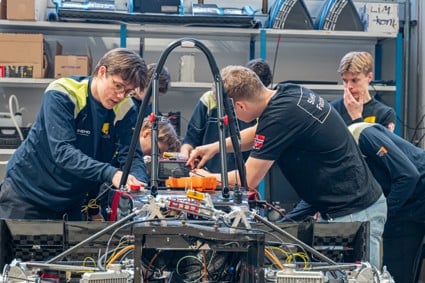For the first time in the team’s history
the race car was ready to drive one month and three days ahead of the previous record set in 2013
After eight intensive months of development and production, Revolve NTNU officially unveiled its latest electric race car.
Sponsorship & Collaboration
Revolve NTNU unveils this year’s race car: VEGA
After eight intensive months of development and production, Revolve NTNU officially unveiled its latest electric race car, VEGA, during a high-profile launch event at Studentersamfundet in Trondheim on 29 April.




